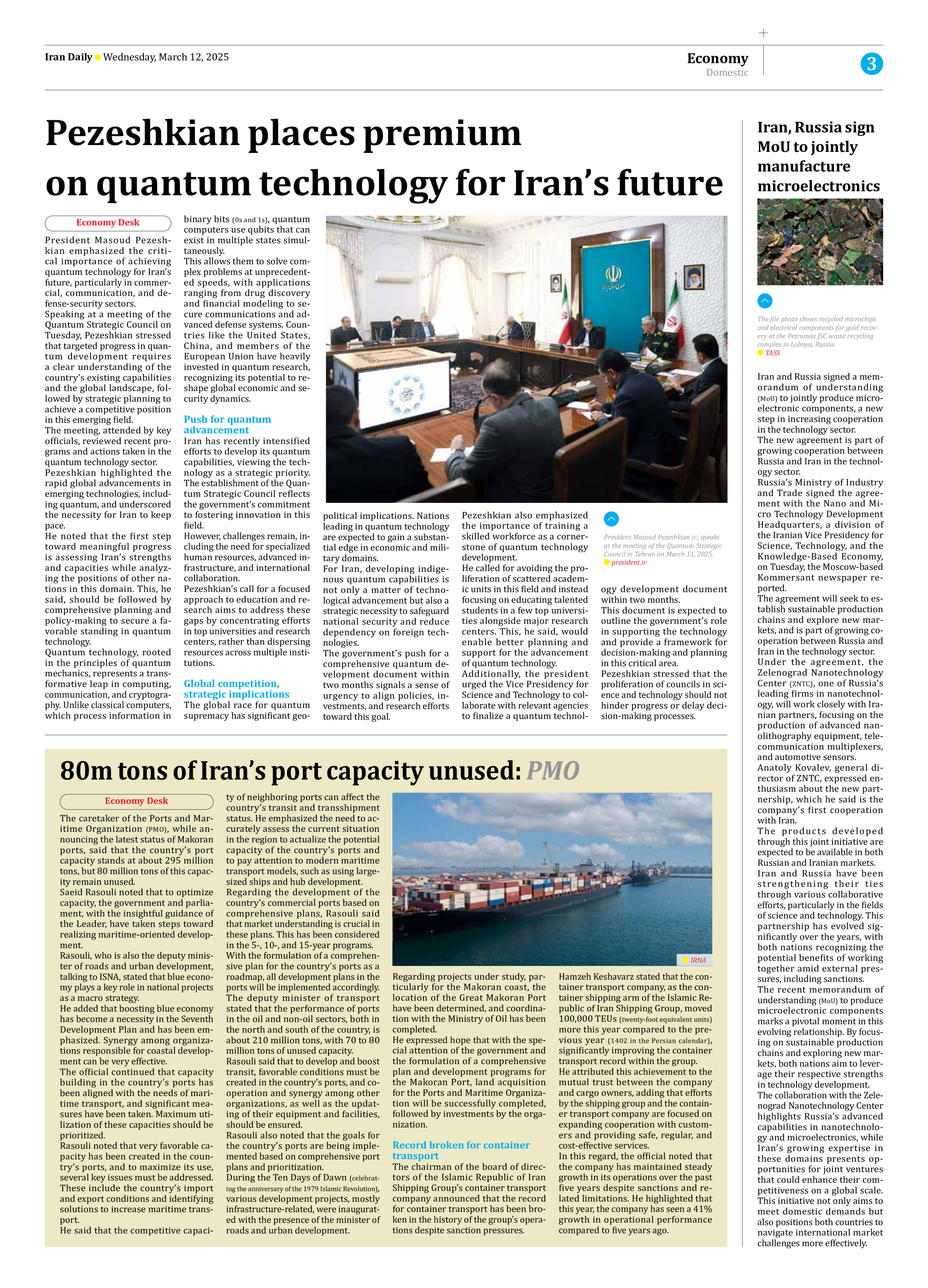
Iran, Russia sign MoU to jointly manufacture microelectronics
The file photo shows recycled microchips and electrical components for gold recovery at the Petromax JSC waste recycling complex in Lobnya, Russia. TASS
Iran and Russia signed a memorandum of understanding (MoU) to jointly produce microelectronic components, a new step in increasing cooperation in the technology sector.
The new agreement is part of growing cooperation between Russia and Iran in the technology sector.
Russia’s Ministry of Industry and Trade signed the agreement with the Nano and Micro Technology Development Headquarters, a division of the Iranian Vice Presidency for Science, Technology, and the Knowledge-Based Economy, on Tuesday, the Moscow-based Kommersant newspaper reported.
The agreement will seek to establish sustainable production chains and explore new markets, and is part of growing cooperation between Russia and Iran in the technology sector.
Under the agreement, the Zelenograd Nanotechnology Center (ZNTC), one of Russia’s leading firms in nanotechnology, will work closely with Iranian partners, focusing on the production of advanced nanolithography equipment, telecommunication multiplexers, and automotive sensors.
Anatoly Kovalev, general director of ZNTC, expressed enthusiasm about the new partnership, which he said is the company’s first cooperation with Iran.
The products developed through this joint initiative are expected to be available in both Russian and Iranian markets.
Iran and Russia have been strengthening their ties through various collaborative efforts, particularly in the fields of science and technology. This partnership has evolved significantly over the years, with both nations recognizing the potential benefits of working together amid external pressures, including sanctions.
The recent memorandum of understanding (MoU) to produce microelectronic components marks a pivotal moment in this evolving relationship. By focusing on sustainable production chains and exploring new markets, both nations aim to leverage their respective strengths in technology development.
The collaboration with the Zelenograd Nanotechnology Center highlights Russia’s advanced capabilities in nanotechnology and microelectronics, while Iran’s growing expertise in these domains presents opportunities for joint ventures that could enhance their competitiveness on a global scale. This initiative not only aims to meet domestic demands but also positions both countries to navigate international market challenges more effectively.







